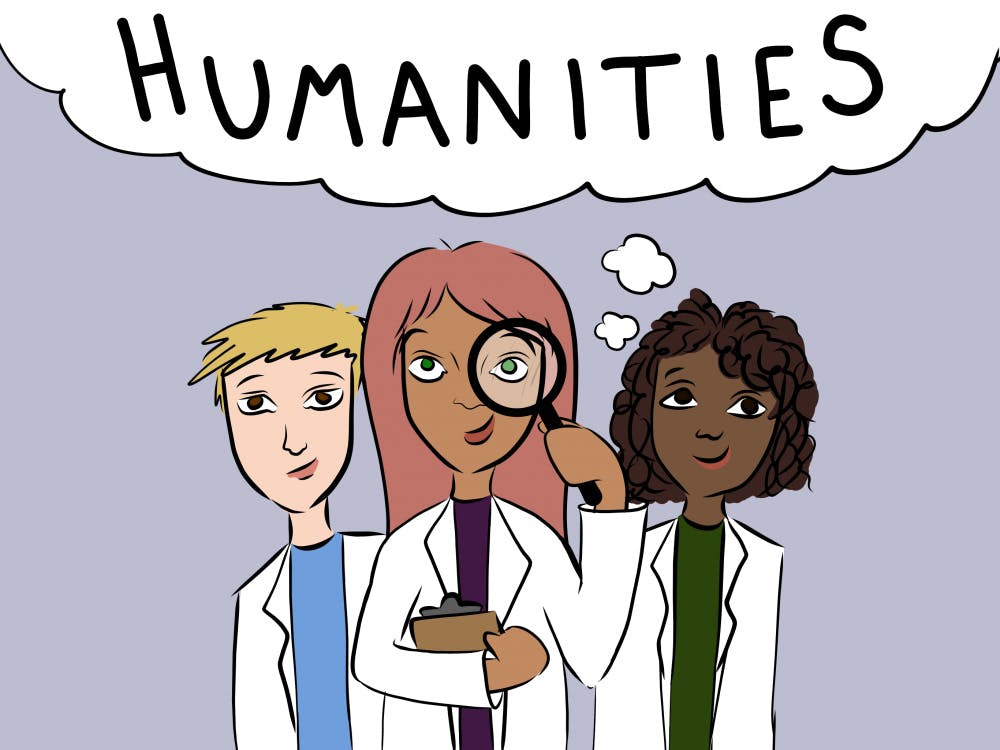For over a decade, a program at ASU has attempted to address some of the world's most pressing issues by encouraging ASU researchers of different disciplines to study together.
The Institute for Humanities Research allows faculty and graduate students to form research clusters to begin cultivating ideas into projects that could potentially address these issues.
Research clusters with both faculty and graduate students meet once a month to discuss research and have a conversation on specific topics of interest in their fields. They are the first in a series of stepping stones to fund projects within the IHR.
According to IHR interim director Cora Fox, the institute's mission is to both support research among faculty in the humanities and allow for engagement across disciplines.
“The research clusters are very important to our mission because they are a place where faculty can come together around issues of common concern and research value,” Fox said. “We use the research clusters as a place to provide infrastructure for capturing faculty research enthusiasm.”
To participate in a research cluster, faculty and graduate students submit an application explaining the theme of the cluster, proposed activities for the group, the value it will have and the facilitators who will contribute.
The application encourages the research cluster to include more than one facilitator from different academic departments, but with at least one from the humanities in ASU's College of Liberal Arts and Sciences.
Once the application is approved, the cluster is given up to $1,000 to fund their project. A common use of the funding is to host speakers, meet with experts to answer questions on their research or to pay for resources needed for the studies.
There are currently four research clusters at ASU. These projects focus on issues ranging from Asian Americans and mental health to radical feminism.
Joshua MacFadyen, an assistant professor in the ASU School of Historical, Philosophical and Religious Studies and the School of Sustainability is a leading member of the "Food and well-being in the Anthropocene" cluster.
“This ... is an interdisciplinary approach to modern history and food systems bringing together environmental historians, philosophers and food scientists in ways that don't happen in a lot of other parts of the world, and even some other parts of ASU despite our progressiveness in doing interdisciplinary work here,” MacFadyen said.
Compared to other clusters, the food and well-being cluster is small, with only the four original members working to build the conversation.
Another cluster in the works is the “Mindfulness and Social Justice" cluster, which was started by Charles Lee and LaDawn Haglund, both associate professors studying justice and social inquiry in the ASU School of Social Transformation.
Their cluster combines mindfulness techniques like yoga, meditation and Buddhism and examines how they influence certain aspects of social justice. Their group has about 30 members, Lee said.
Both groups plan to use their funding to bring in a speaker on their respective topics.
When groups like the research clusters form, their possible influence expands. They can use their research from their cluster to apply for larger grants. The groups function as a starting place for conversation.
“You need to be able to show proof of concept when you apply for (grants)," Fox said. "You need to have something under your belt – some type of discussion on what you’re trying to build together. And these research clusters give faculty a chance to come together and figure out what they're going to build."
One of the clusters from the 2016-17 academic year was "Gender and Sport," led by Victoria Jackson, a lecturer in the ASU School of Historical, Philosophical and Religious Studies.
Her cluster ended up having about 22 people involved. The team brought in a speaker to discuss gender and sport at a public talk and privately to women college athletes at ASU.
Jackson said that with the help of another member from the cluster, she began an effort to celebrate Title IX and women in sports in higher education this year.
“This is the place for grassroots enthusiasm," Fox said. "$1,000 is not a huge university investment, but it's enough to get people started, to have them talking to each other and that's what we want.”
Reach the reporter at madison.arnold.1@asu.edu or follow @madisonC_arnold on Twitter.
Like The State Press on Facebook and follow @statepress on Twitter.




